Yesterday, Global NCAP released the much awaited and disappointing results of the crash tests they conducted on Indian cars. All the cars failed miserably and bombed their report cards with zero stars. The folks at Global NCAP tested the Hyundai Eon, Mahindra Scorpio, Renault Kwid and Maruti Suzuki’s Eeco and Celerio. All these cars exhibited dismal protection for adult occupants. Well, this is not the first time that India-made cars have failed crash tests. The same unhappy situation took place when Global NCAP had tested a bunch of Indian made cars in 2014.
This crash test and its results have created uproar in the Indian automotive industry. Not all of the makers of the vehicles in question have released their statements, but some of them have and they sound rather unaffected by the outcome. After a series of reported accidents and crash test by organizations like Global NCAP, the Indian car manufacturers realized the importance of airbags and outfitted many of their cars with safety equipment as standard features. However, the ‘we comply with the local norms’ rhetoric is more or less the story with the official statements sent out by almost all the car makers.
In a statement released by Mahindra, the company said “All Mahindra Automotive products are developed and manufactured to meet or exceed the safety standards set in India for a safe driving experience. In fact, many models exceed the expected regulations of 2019. The star rating as released by Global NCAP (GNCAP) in the latest crash test was conducted on non-airbags variant of the Scorpio. Typically, in any star rating process, non-airbag variants do not perform well on safety standards”
They further added,”Most variants of the Scorpio are equipped with airbags and a safety package. Approximately 75% of Scorpio customers choose the air bags variants of the vehicle. There is nothing more important to us than our customer’s safety. We are committed to meeting and exceeding all current and future safety norms and in most cases giving our customers choice of enhanced safety beyond the regulated standards.”
Maruti Suzuki has been hit hard by the crash test results as two of their vehicles have not been able to get even a single star in the test. Maruti Suzuki questioned the attitude of Global NCAP towards Indian cars and manufacturer and said, “If GNCAP is genuinely concerned about road safety why don’t they help India in conducting research of fatalities and study other factors impacting road safety such as licensing, driving quality, road engineering, and traffic management?”
Moving on to Renault India, the company issued a statement saying “GNCAP announced their results today and welcomed Renault’s efforts and commitment to safety enhancement.Safety is of paramount importance for Renault and all our products meet and exceed the requisite safety standards set by Indian Regulatory Authorities. India is gradually moving towards international safety norms by including more robust safety regulations and the assurance of the Bharat NCAP is a positive step in this direction.”
“As a customer-focused company, Renault fully supports this initiative and we are already future-ready in terms of technology, design and engineering for enhanced safety for all our vehicles.Indian Government has announced that the crash test regulation for the existing cars will come into effect in 2019 and for the new cars in 2017. Renault is committed to comply with these timelines”.
Hyundai Motor India also responded in a similar tone. Regarding the tests the officials expressed, “Hyundai Motor India affirms that Hyundai vehicles are designed and build to meet all the prescribed safety standards set by Indian Regulatory Authorities.”
Toyota has not yet reacted on the situation and it seems they wouldn’t enter the brawl as their Etios has delivered an impressive performance. The car scored a healthy 13 points, gaining it a four-star rating. The car didn’t score well on the child protection front but for adult occupants, the car seems safe.
Lastly, moving on to the smaller quadricycle segment, the Bajaj Qute maker has been in heated talks with the Global NCAP organization for a while now. We know that the vehicle didn’t score well, but Rajiv Bajaj, MD of Bajaj Auto has a different opinion about it which a lot of organizations seem to object to. On the Qute and the crash test situation he says, “While I haven’t personally seen anything further on quadricycles from NCAP, it is clear to me that their stand on safety is beyond my limited comprehension. I hear NCAP implying that those who walk, cycle, ride, or use a 3-wheeler must not seek a safer alternative in the quadricycle; they must continue as they are until they can afford a high emission, low mileage, congestion causing car instead.”
This is where the matter heats up and he further adds, “Well, Marie Antoinette is known to have lost her head – both figuratively & literally – when she suggested that those who couldn’t afford bread should have cake. Speaking of cake it amuses me no end that on the one hand NCAP has apparent misgivings about quadricycles with respect to safety, yet simultaneously NCAP along with the Ministry of Road Transport and Highways & the Institute of Road Traffic Education (IRTE) invited Bajaj Auto to speak at the Indian Automobile Safety Conference in Delhi on Monday 16th May 2016, calling the Bajaj Qute ‘a global example and a vehicle of the future”.
A case of wanting to have your cake & eat it too? Do share your thoughts on this sensitive subject using the comments section below. We assure you, that the industry listens when you write your comments articulately enough on Motoroids. We’re eagerly looking forward to knowing your opinion.

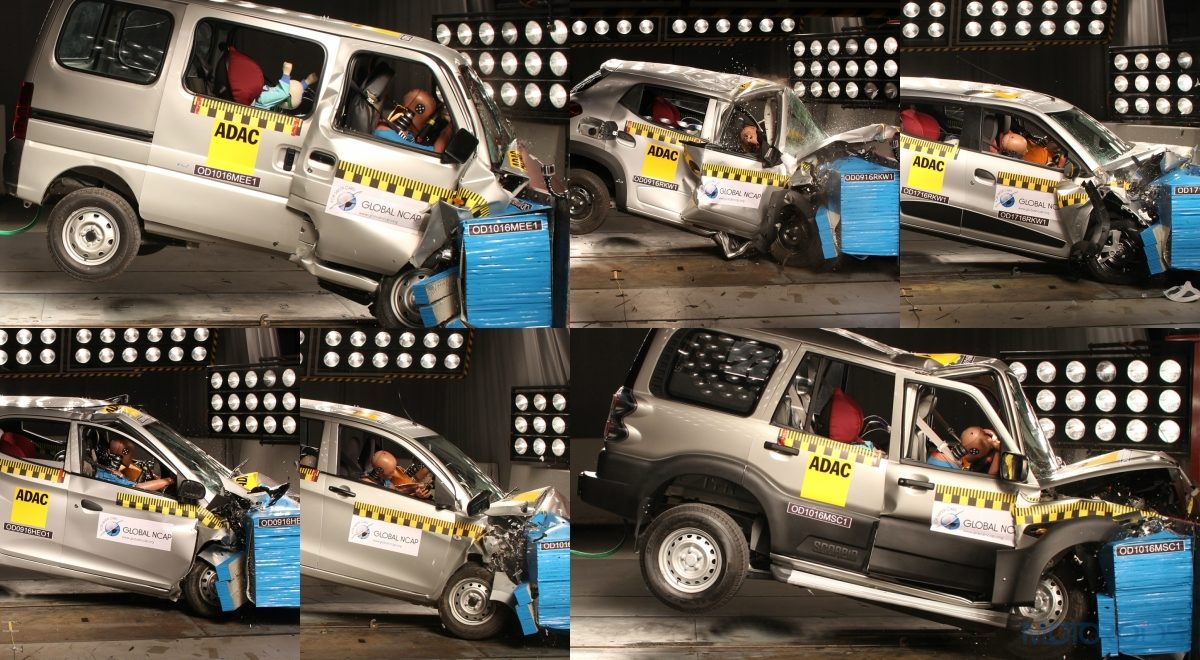
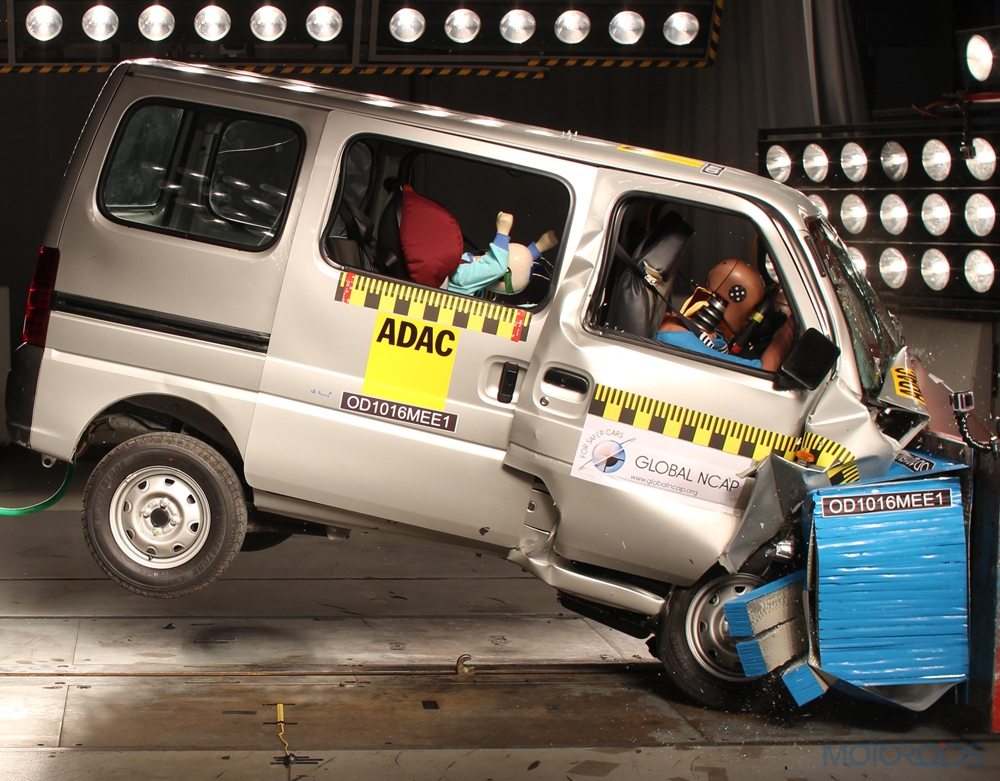
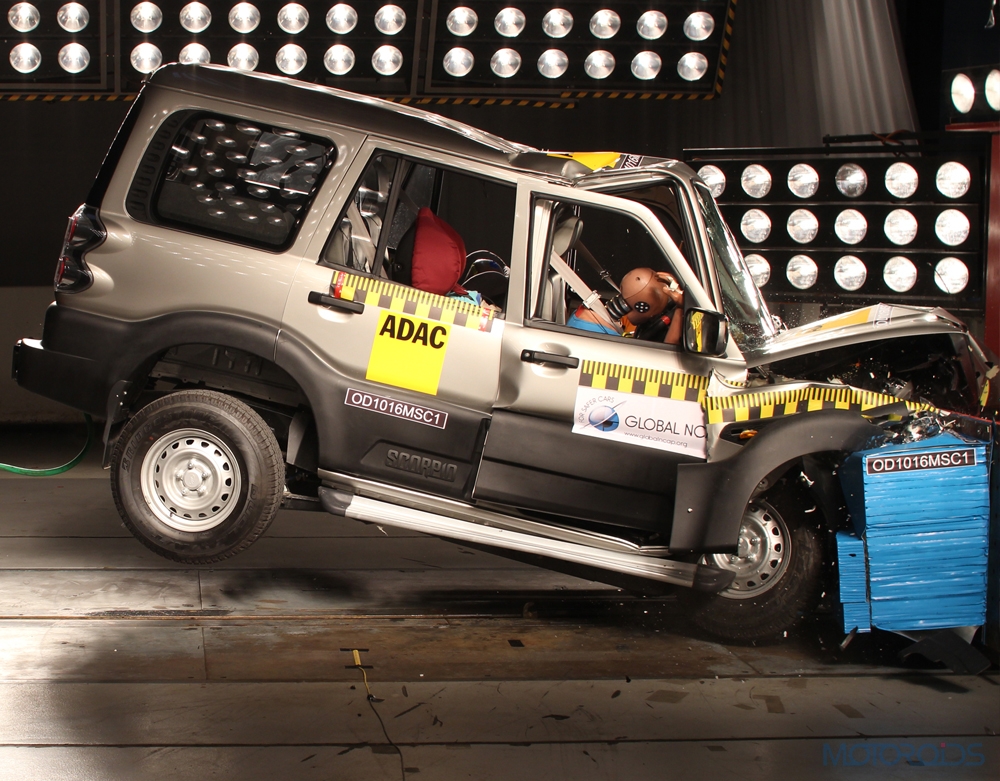
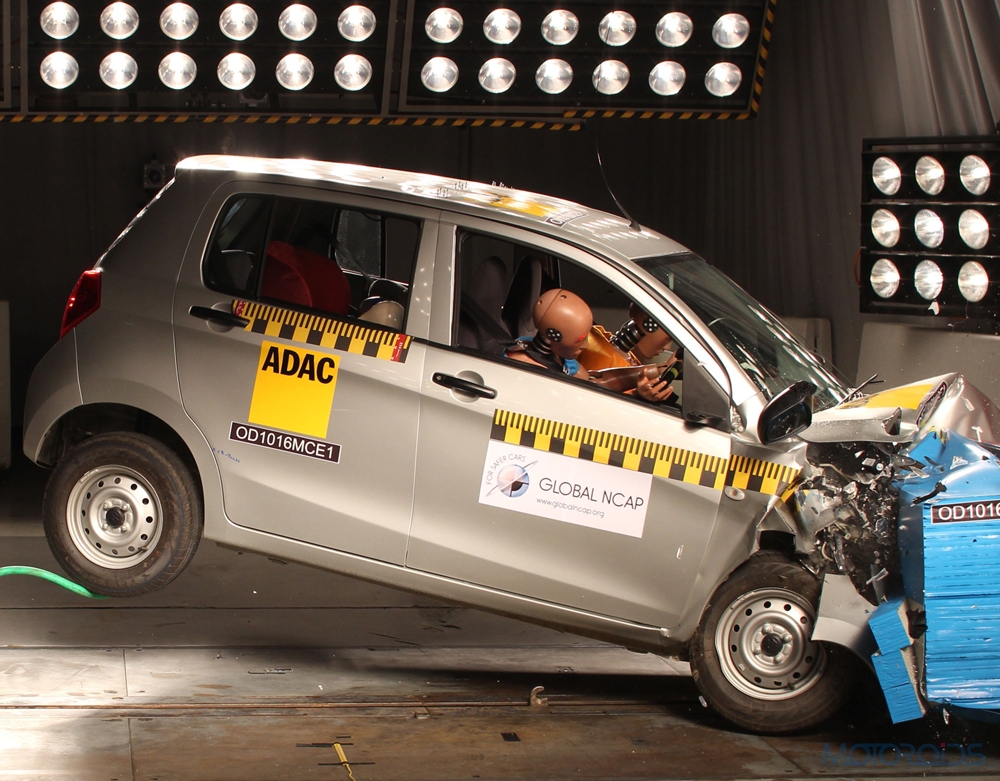
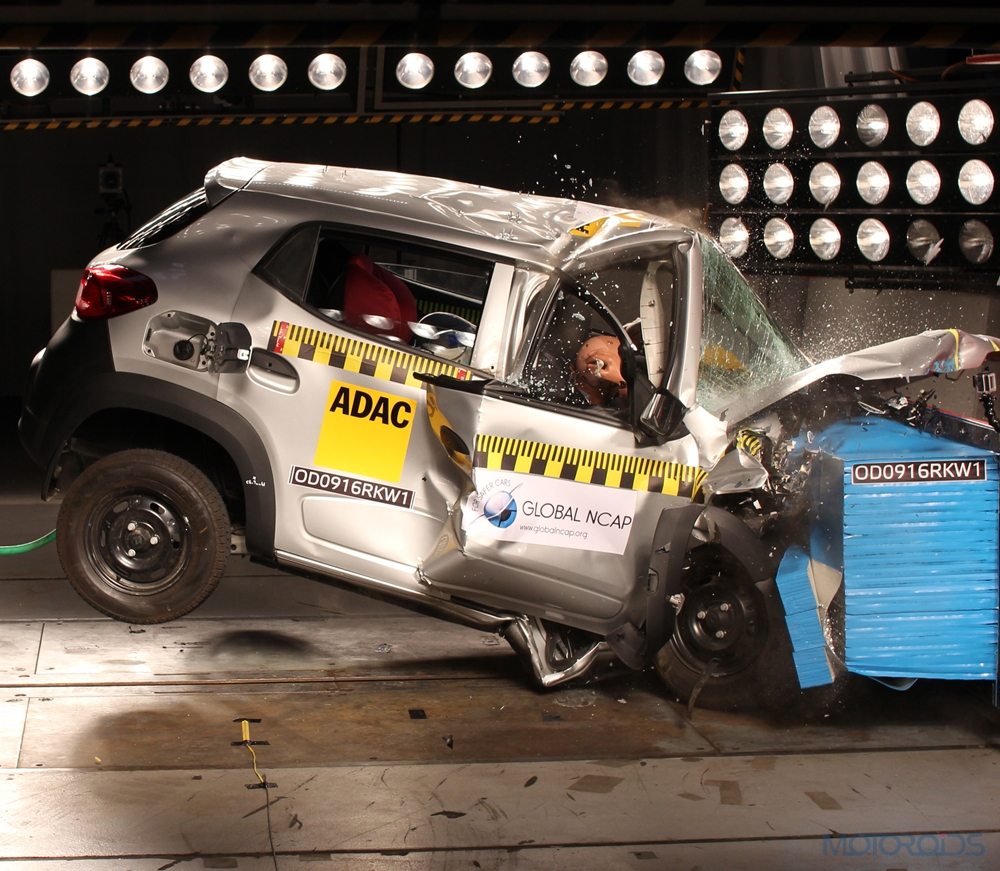
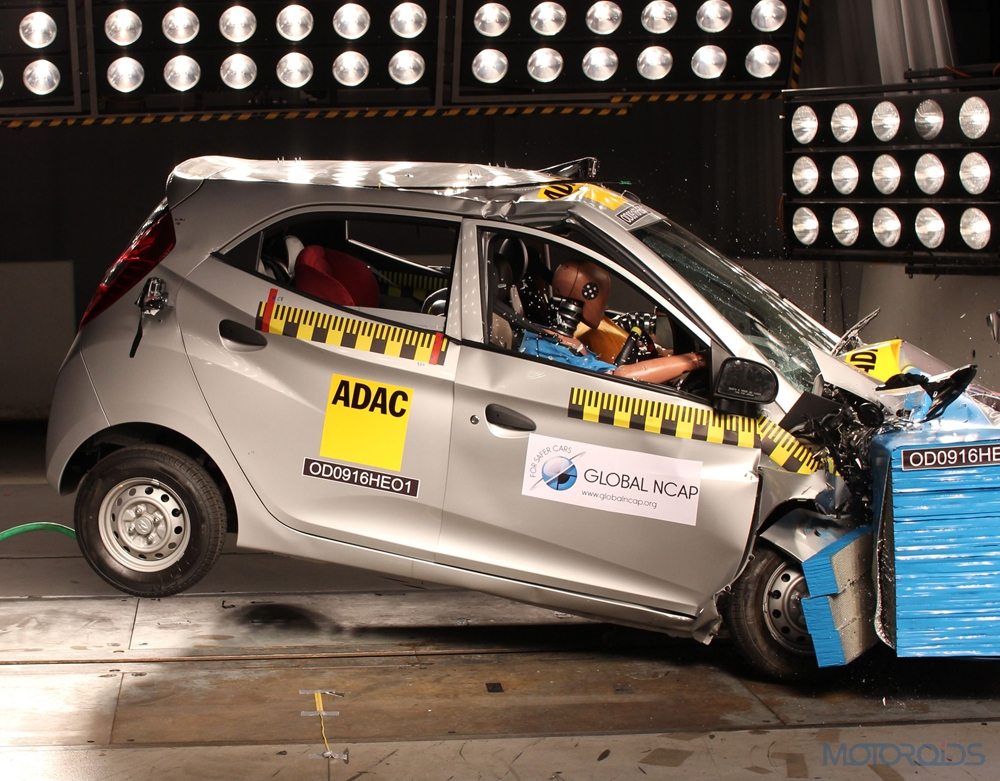
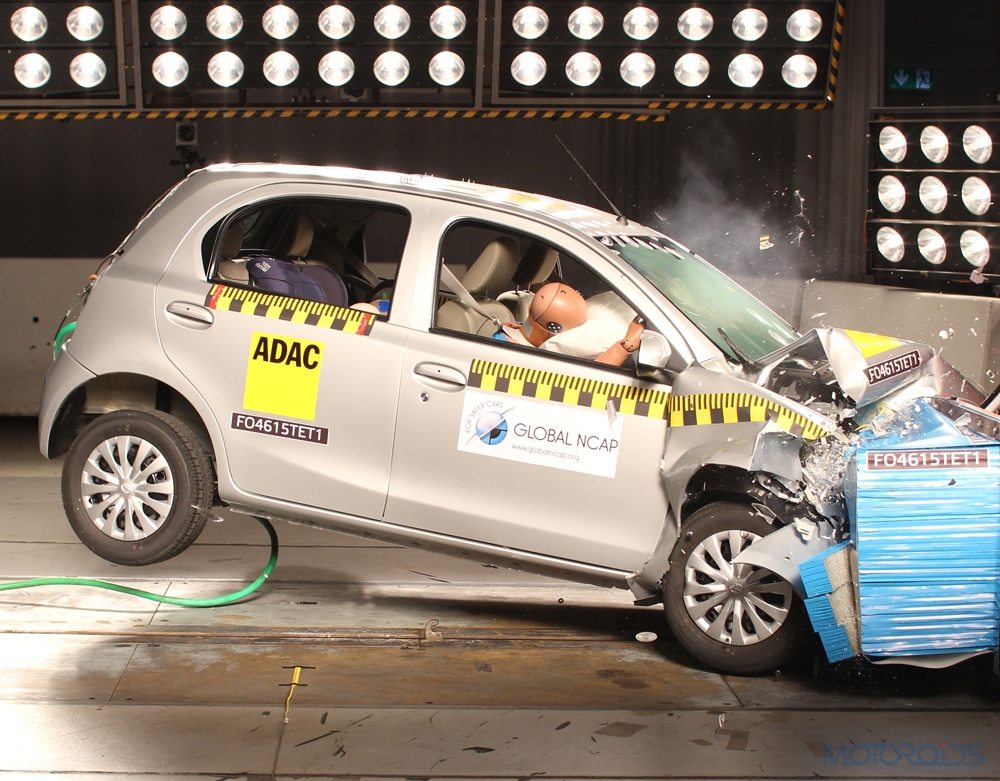
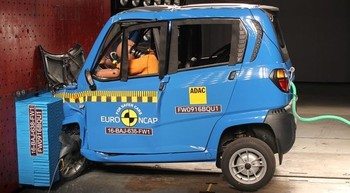
For contributing to the article and the conversation, I want to add that safety is not only presence of “marketed safety features” like ABS, EBD and Airbags, for which a shameless and ruthless premium is charged on the upper models. The most important thing for safety is the chassis and structural integrity, which is almost a makeshift on these lower end cars.
Price and model differences are justifiable by absence and presence of convenience features, but selling “safety” on a premium is not only ridiculous but also unethical.
Such a sick attitude by the auto makers. They are not even showing any responsibility when the results are clearly visible. if they are bound by the local safety norms, then its high time to change those very norms to avoid these kind of accidents. All zero star cars should be scrapped from production. Mr. Modi and Mr. Gadkari should implement the changes asap w.r.t automotive design norms.
It is time that we stop these match boxes on 4 wheels.
Absolutely ridiculous. Unless Govt exposes stringent norms these carmakers do not care about Indian car buyers safety. They just want to milk money and don’t care about safety. Ask these company CEOs and their families to commute every day (especially at nights on freeways) in one of their own non safe cars until 2019 or till they make cars safe. European and other exported cars have six plus airbags, ABS, ESP as standard. It should not be optional feature but a mandatory feature from base model.